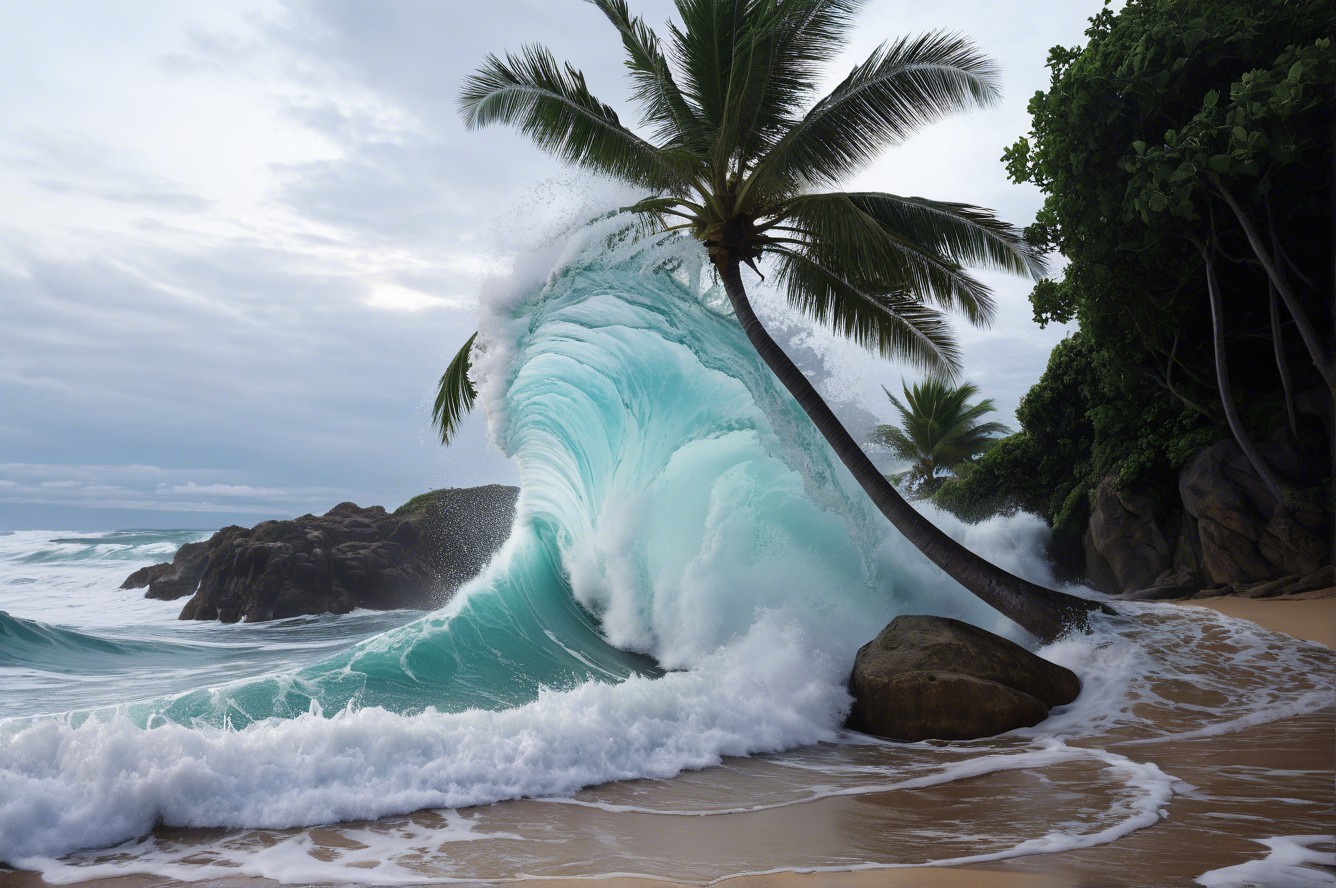The Unified Countries Secretary-General António Guterres has said that enormous polluters have a reasonable obligation to cut discharges – or risk an overall disaster. “The Pacific is today the most weak region of the world,” he told the BBC at the Pacific Island Gathering Pioneers Meeting in Tonga. “There is a huge bad form according to the Pacific and it’s the explanation I’m here. The little islands don’t add to environmental change yet all that happens due to environmental change is duplicated here.” Be that as it may, at last, the “flooding oceans are coming as far as we’re concerned all,” he cautioned in a discourse at the gathering, as the UN discharges two separate reports on rising ocean levels and how they compromise Pacific island countries.
The World Meteorological Association’s Condition of the Environment in the Southwest Pacific report says this district faces a triple whammy of a speeding up ascent in the ocean level, a warming of the sea, and fermentation – an ascent in the ocean’s corrosiveness since it’s retaining increasingly more carbon dioxide.
“The explanation is clear: ozone-depleting substances – predominantly produced by consuming non-renewable energy sources – are cooking our planet,” Mr Guterres said in a discourse at the gathering.
“The ocean is taking the intensity – in a real sense.” The current year’s topic – groundbreaking flexibility – was tried on the first day of the season when the new hall was deluged by weighty downpours and structures cleared on account of a seismic tremor. “It’s an obvious sign of how unstable things are inside our locale, and how significant it is that we want to plan for everything,” Joseph Sikulu, Pacific chief at 350, an environmental change backing bunch, told to us.
Not a long way from the setting was a road march, with artists addressing the locale, including Torres Waterway islanders, Tongans, and Samoans. Toward the beginning of the motorcade, a major standard peruses, “We are not suffocating, we are battling”. Another says: “Ocean levels are rising – we are as well”.
It repeats a test that takes steps to clear out their reality – the UN Environment Activity Group delivered a report called “Flooding Oceans in a Warming World” showing that worldwide typical ocean levels have increasing at rates exceptional in the beyond 3,000 years. As per the report, the levels have risen a normal of 9.4cm (3.7in) in the beyond 30 years however in the tropical Pacific, that figure was as high as 15cm. “Pioneers, particularly like Australia and Aotearoa, must come and observe these things for themselves, yet additionally witness the versatility of our kin,” Mr Sikulu said. “A centerpiece of Tongan culture is our capacity to have the option to keep on being blissful all through our misfortune, and that is the way we practice our versatility and to see and observe that, I believe will be significant.”

This is the second time Secretary-General Guterres has partaken in the Pacific Islands Discussion Pioneers Meeting. The yearly gathering unites pioneers from 18 Pacific Islands, including Australia and New Zealand.
As pioneers met for the authority opening service, heavy downpours caused broad flooding. In no time subsequently, a greatness 6.9 quake hit the Tonga district, featuring exactly the way that weak it is.
In 2019, Mr Guterres ventured out to Tuvalu where he sounded the alert about rising ocean levels. Five years on, he says he has seen genuine changes.
“We see wherever a huge obligation to oppose, a guarantee to decrease the adverse consequence of environmental change,” he told the BBC. “The issue is, the Pacific Islands additionally experience another large unfairness – the worldwide monetary instruments that exist to help nations in trouble were not intended for nations like this.”
Mr Guterres on Monday visited neighborhood networks whose jobs are undermined by rising ocean levels. They’ve been hanging tight for quite a long time for a choice to be made on the financing of an ocean wall.
“The organization, the intricacy, the absence of the need to get moving because it’s a little island, far away,” he said, referring to the downfalls of the worldwide monetary framework, particularly with regards to little, creating island states.
“There are commitments of increments of cash accessible for transformation in agricultural nations yet in all actuality we are a long way based on what is required, from the necessary fortitude for these nations to have the option to exist.”
Numerous Pacific islanders here at the meeting single out the greatest local contributor and producer – Australia.

Recently, Head of the State Anthony Albanese said Australia would increase its extraction and utilization of gas until “2050 and then some,” despite calls to gradually transition away from non-renewable energy sources. “There is a fundamental obligation of the large polluters,” Mr Guterres said when asked by the BBC what message he has for local producers like Australia. Without that, the world will breach the edge of 1.5C that was laid out in the Paris Understanding in 2015.

That arrangement intends to restrict an unnatural weather change to “well beneath” 2C before the century is over, and “seek after endeavors” to continue to warm inside the more secure constraint of 1.5C. “Exclusively by restricting warming to 1.5 degrees Celsius do we have a battling opportunity of forestalling the irreversible breakdown of the Greenland and West Antarctic ice sheets – and the calamities that go with them,” Mr Guterres said. “That implies slicing worldwide emanations 43% contrasted with 2019 levels by 2030, and 60% by 2035.” Last year, however, worldwide emanations rose 1%. “There is a commitment of the G20 that address 80% of outflows – there’s a commitment for them to meet up, to ensure a decrease of emanations now,” Mr Guterres said.
Discover more from How To Got
Subscribe to get the latest posts sent to your email.

